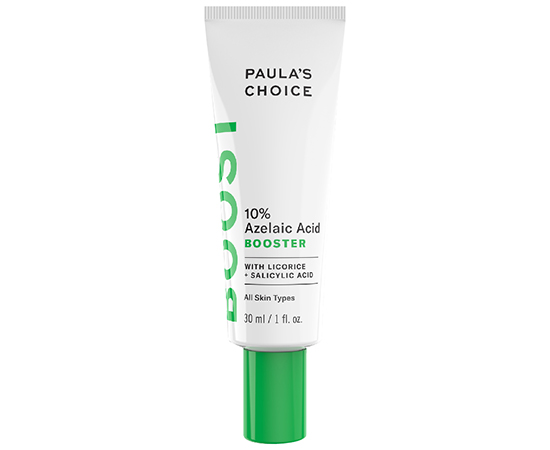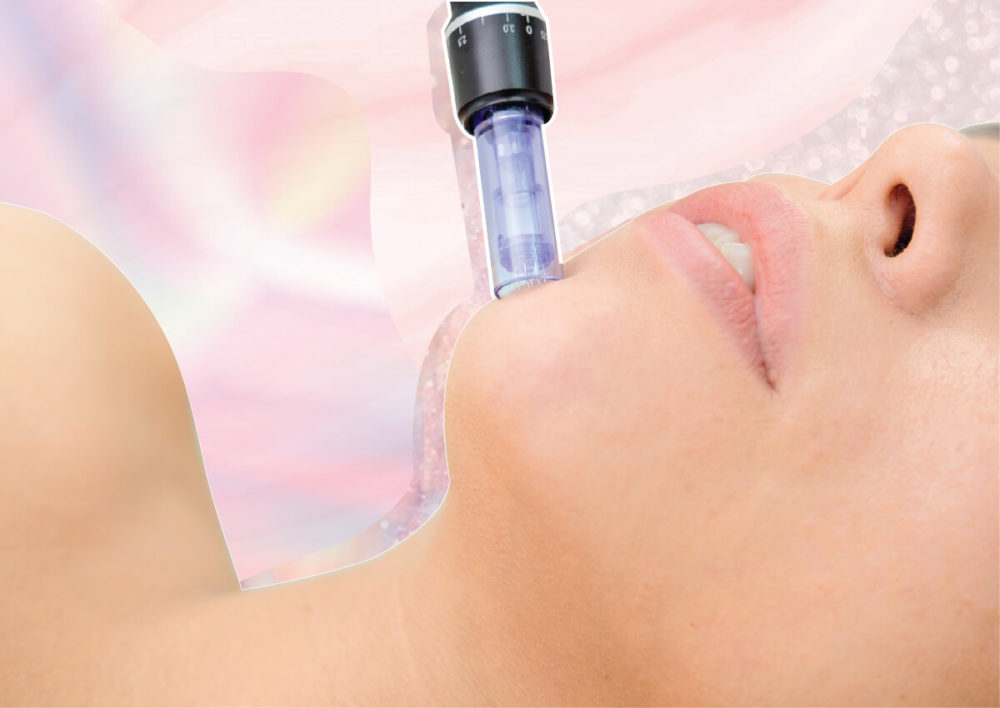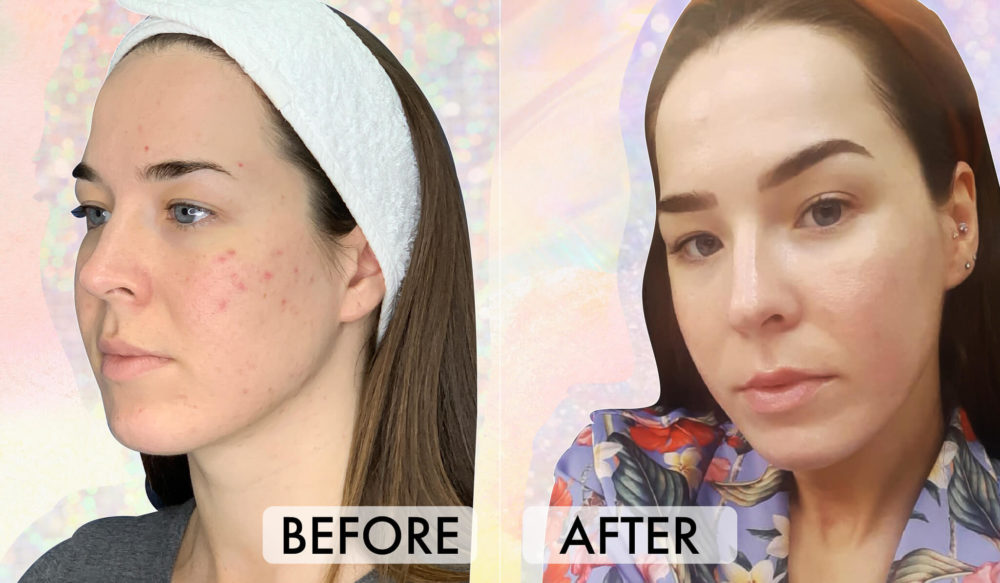An Expert's Guide To Treating Post-Summer Hyperpigmentation

While hyperpigmentation can happen at any time of the year, it tends to rear its unwelcomed head during the summer months thanks to all that poolside lounging and outdoor exploration. By the time autumn comes around, our freckles are more intense, our necks and arms might be notably more tan (or redder!), and we may have even accumulated a few new spots.
Today we’re discussing why post-summer hyperpigmentation happens in the first place, whether it’s permanent, and what steps you can take to minimize the damage that’s already been done. For all the answers, we reached out to three amazing dermatologists eager to bestow their wisdom.
Why Hyperpigmentation Worsens in the Summer
Ever wondered why hyperpigmentation happens in the first place? Obviously, we know the sun’s involved, but what’s happening physiologically? Long story short: It’s your skin’s defense mechanism!
“Hyperpigmentation is your skin’s way of trying to protect against more intense, harmful ultraviolet (UV) rays,” notes Dr. Ife Rodney, a board-certified dermatologist and founding director of Eternal Dermatology in Fulton, Md. “The melanocytes are the cells in your skin that produce the protective pigment, melanin. On exposure to sunlight, your melanocytes are triggered to produce more melanin, resulting in hyperpigmentation.”
She adds that any existing hyperpigmentation is likely to get even darker when exposed to the sun. Also, if your skin type is naturally more prone to pigmentation, then you may see more dark spots or bigger spots form anytime there’s increased sun exposure (like in the summer).
Is Summer-Induced Hyperpigmentation Permanent or Temporary?
The answer is that it depends on how much damage has been done. Dr. Rodney tells us that hyperpigmentation from sun exposure in the summertime is often temporary – and that it can fade within a few months with treatment and with strict sun avoidance. Think freckles and lighter areas of discoloration.
“That said, some more severe cases [of hyperpigmentation] can take about one or two years to fade, or they may never heal completely,” says Dr. Rodney. She adds, “People with darker skin types naturally have more melanin. As a result, hyperpigmentation occurs easily and may take much longer to improve.”
Sunscreen, topical treatments, in-office lasers, and chemical exfoliants can help fade or remove hyperpigmentation. The more severe the discoloration, however, the longer and more intense this fading process may take. And again in some cases, the spots might not go away completely.
Here’s what you need to do to fade those unwanted dark spots.
1. Get Strict With Your SPF

Since hyperpigmentation is directly correlated to sun exposure, it makes sense to follow a strict sunscreen regimen.
“Excellent photoprotection is most important,” stresses Dr. Blair Murphy-Rose, a board-certified dermatologist at the Laser & Skin Surgery Center of New York. “It protects against hyperpigmentation, prevents it from worsening, and helps it to fade.”
Wear an SPF of 30 or higher every single day – even when it’s raining or you’re indoors. Also, this SPF should be its own product – not mixed into a moisturizer or part of a cosmetic item such as foundation. Dr. Murphy-Rose also recommends wearing a wide-brimmed hat and sunglasses. Check out our fave SPFs here.
Posts You'll Love:
2. Use a Chemical Exfoliant Every Week
 Source: Paula’s Choice
Source: Paula’s Choice
Chemical exfoliation is one of the best treatments for hyperpigmentation since it gently nixes top layers of skin to reveal the fresher skin underneath. For best results, use an AHA or BHA chemical exfoliant at least once or twice a week.
Dr. Annie Gonzalez, a board-certified dermatologist at Riverchase Dermatology in Miami, Fla., recommends Paula’s Choice 10% Azelaic Acid Booster, $39. She says, “It contains azelaic acid, an ingredient that helps blocks tyrosinase, which therefore reduces melanin production. This product also fades uneven skin tone, calms redness, smooths bumpy texture, and is lightweight and oil-free.”
She also recommends The Ordinary Mandelic Acid 10%, $8, “Mandelic acid is oil-soluble, meaning it works at both the surface of the skin and deeper down in the pores. It also penetrates the skin more slowly, making it gentle and suitable for all skin types,” she explains.
3. Add Skin-Brightening Products to Your Regimen
 Source: Versed
Source: Versed
“Use dermatologist-recommended products that help brighten the skin. [I recommend] products that contain niacinamide, vitamin C, bakuchiol, and/or retinol, especially in serum formulations,” says Dr. Rodney.
Niacinamide (vitamin B3) is known for its ability to fade hyperpigmentation, and vitamin C helps brighten skin while defending against free radical damage. Retinol – and its natural alternative, bakuchiol – foster skin cell turnover to reveal brighter skin.
Some of our favorites include Bye Bye Dark Spots Niacinamide Serum, $29, and Versed Skin Press Restart Gentle Retinol Serum, $22. For bakuchiol, try Herbivore Bakuchiol Retinol Alternative Smoothing Serum, $54.
4. Consider an In-Office Treatment

Dr. Murphy-Rose says, “In early fall, many of my patients will come in for in-office procedures to help correct and reverse hyperpigmentation, whether from sunspots, melasma or something else. In-office laser treatments and chemical peels are very popular and effective.”
She adds that she’s personally seen excellent results using a combination of lasers targeting the pigment and resurfacing lasers like Clear + Brilliant and LaseMD. If you go this route, do seek out a reputable, board-certified dermatologist with extensive laser experience. And don’t forget to slather your sunscreen after, otherwise you risk undoing that expensive treatment.
For more expert advice, check out our expert’s guide to hyperpigmentation.
Disclaimer: Every product we review has been independently selected and tested without bias by our editorial team. We never take payment to review products, however, some brands allow affiliate links, so we may earn a commission if you purchase a product by clicking on one of our links.























Leave a comment